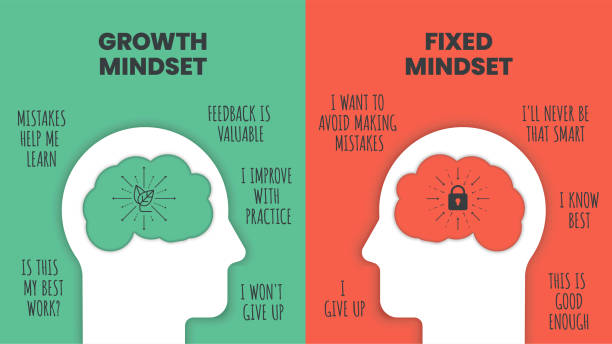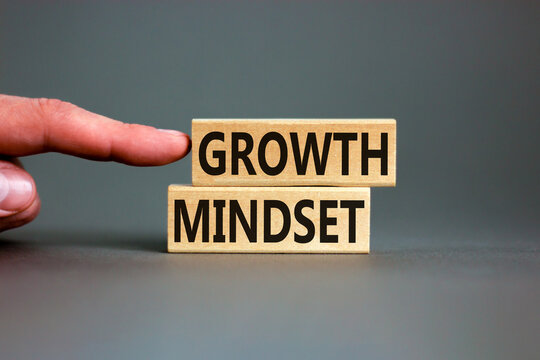Developing a growth mindset is more crucial than ever in the fast-paced world of today, particularly for teenagers. Teens are a time when people are discovering their identities, roles in society, and strategies for overcoming obstacles. Teens who have a growth mindset—the conviction that intelligence can be acquired via effort—are better able to accept difficulties, grow from setbacks, and succeed in all facets of their lives.
We’ll go into how to get teens growth mindset in this post, along with why it’s an essential ability for their development. By the end, whether you’re a parent or mentor, you’ll know exactly how to put these methods into practice and help your child see obstacles as chances for personal development.
You may want to read: Benefits of AI Education Materials for Students
- Understanding Growth Mindset for Teens
- 1. Encourage Effort Over Outcome
- 2. Teach the Power of "Yet"
- 3. Set Realistic, Achievable Goals
- 4. Model a Growth Mindset Yourself
- 5. Foster a Positive Learning Environment
- 6. Encourage Curiosity and a Love of Learning
- 7. Be Patient and Persistent
- Final Thoughts
- FAQs about how to get teens growth mindset
Understanding Growth Mindset for Teens

Before we dive into the steps, let’s first define what a growth mindset is and why it’s so essential for teens.
A growth mindset is the belief that abilities and intelligence are not fixed traits but can be developed over time through effort, learning, and perseverance. This mindset encourages individuals to embrace challenges, learn from mistakes, and keep pushing forward despite setbacks.
In contrast, a fixed mindset is the belief that abilities are static, and no amount of effort will change them. Teens with a fixed mindset may give up easily, avoid challenges, or feel defeated when things don’t go their way.
So, how can you help teens develop a growth mindset? Here’s a step-by-step guide.
1. Encourage Effort Over Outcome
One of the first steps in helping teens develop a growth mindset is to shift the focus from results to the effort put into achieving those results. When teens believe that hard work leads to improvement, they are more likely to persevere and take on new challenges.
Step-by-Step Action Plan:
- Praise effort, not just success. Instead of only praising your teen when they succeed, celebrate the effort they put in. For example, instead of saying, “You did great on your test!” say, “I’m proud of how hard you worked to study for that test.”
- Help them understand that failure is part of learning. Let your teen know that it’s okay to make mistakes—what’s important is what they learn from them and how they keep trying.
By celebrating effort, you reinforce the idea that hard work leads to growth, which is central to a growth mindset.
2. Teach the Power of “Yet”
The word “yet” can be a game-changer when teaching teens about a growth mindset. Instead of saying, “I can’t do this,” encourage them to say, “I can’t do this yet.” This simple shift in language helps them see that skills can be developed over time, and they are not limited by their current abilities.
Step-by-Step Action Plan:
- Incorporate “yet” into conversations. Whenever your teen expresses doubt or frustration, remind them to add “yet” to their statement. For example, “I don’t understand this math problem… yet.”
- Reinforce growth through language. Use language that emphasizes growth and development. Say things like, “It’s okay if you don’t know it yet, we can work on it together.”
This small change in perspective can help your teen stay motivated and persistent when faced with challenges.
3. Set Realistic, Achievable Goals
Teens can sometimes feel overwhelmed by big tasks or long-term goals. It’s important to break down larger goals into smaller, more manageable steps. This will help them stay motivated and feel a sense of accomplishment as they progress.
Step-by-Step Action Plan:
- Set short-term goals. Help your teen break their larger goals into smaller, more achievable steps. For example, if they want to improve their grades, set a goal of studying for 30 minutes each day.
- Celebrate milestones. When your teen achieves a small goal, celebrate it. This reinforces the idea that progress, no matter how small, is important.
By setting realistic goals, your teen will feel more confident in their ability to improve, which is key to developing a growth mindset.
4. Model a Growth Mindset Yourself

Teens are more likely to adopt a growth mindset if they see it in action from the adults around them. As a parent or mentor, modeling a growth mindset can have a profound impact on your teen’s perspective.
Step-by-Step Action Plan:
- Share your own learning experiences. Talk to your teen about times when you faced challenges and how you overcame them through perseverance and learning.
- Be open about your own mistakes. Show your teen that it’s okay to make mistakes and that failure is simply a part of the learning process. For example, “I didn’t get this right the first time, but I learned from it and tried again.”
By modeling a growth mindset, you demonstrate to your teen that growth is a lifelong journey.
5. Foster a Positive Learning Environment
The environment in which a teen learns plays a huge role in shaping their mindset. A positive, supportive environment can encourage teens to take risks, try new things, and believe in their ability to grow.
Step-by-Step Action Plan:
- Create a supportive home or classroom environment. Encourage open communication and make sure your teen feels comfortable asking questions and expressing their thoughts.
- Promote collaboration. Encourage your teen to work with peers and share ideas. This can help them feel more supported and confident in their abilities.
A positive environment can significantly impact your teen’s ability to develop a growth mindset.
6. Encourage Curiosity and a Love of Learning

A key element of the growth mindset is curiosity. Teens who are encouraged to be curious and explore new things are more likely to embrace challenges and develop resilience.
Step-by-Step Action Plan:
- Encourage exploration. Help your teen find hobbies or subjects that spark their interest. This could be anything from learning a new language to exploring different types of art.
- Support their passion projects. Whether it’s a science fair project or a personal art project, show interest and support for your teen’s learning endeavors.
Encouraging curiosity helps teens see learning as an exciting, ongoing process rather than something they just do to achieve a goal.
7. Be Patient and Persistent
Developing a growth mindset is not something that happens overnight. It takes time, patience, and consistent effort. Be patient with your teen as they work through their challenges and encourage them to stay persistent.
Step-by-Step Action Plan:
- Be consistent in your support. Keep reinforcing the importance of effort and growth, even if progress seems slow.
- Reassure them during setbacks. When your teen faces a setback, remind them that growth takes time and effort, and that they are capable of overcoming challenges.
By being patient and persistent, you help your teen develop the resilience needed to succeed in life.
Final Thoughts
Helping your teen develop a growth mindset is one of the most valuable gifts you can give them. By encouraging effort, teaching the power of “yet,” setting realistic goals, modeling a growth mindset, fostering a positive learning environment, encouraging curiosity, and being patient, you’re setting your teen up for long-term success.
Remember, the key is to consistently reinforce the idea that abilities and intelligence can be developed with hard work and persistence. As your teen embraces this mindset, they will be better equipped to navigate life’s challenges and reach their full potential.
FAQs about how to get teens growth mindset
1: What is a growth mindset for kids?
A growth mindset for kids means teaching them that intelligence and abilities can improve through effort and learning, rather than being fixed traits.
2: How can parents support a growth mindset for teens?
Parents can support a growth mindset for teens by praising effort, setting realistic goals, and modeling persistence and learning from failure.
3: How can you use a growth mindset in everyday life?
You can use a growth mindset by embracing challenges, learning from mistakes, and viewing setbacks as opportunities for growth rather than obstacles.
4: What is the difference between a growth mindset and a fixed mindset?
A growth mindset believes that abilities can be developed with effort, while a fixed mindset believes that abilities are static and unchangeable.
5: How can a growth mindset help teens succeed?
A growth mindset helps teens stay motivated, embrace challenges, and learn from mistakes, ultimately leading to greater success and resilience.





